Besides giving you energy for the following day, sleep contributes to long-term health, lowering the risk for many chronic diseases and conditions. To ensure consistently good sleep, you need to be mindful of how you sleep.
One practice that can help you get there is sleep tracking. Today, you can have numerous devices and apps that monitor your sleep each night, evaluate your sleep quality, and spot patterns. Sleep tracking helps you understand which habits encourage high-quality sleep and which hinder it. This awareness lets you make healthy changes to your everyday routine and lifestyle.
Today, we’ll explore:
Eight best sleep tracking devices
Tips to improve your sleep
Limitations of sleep trackers
We’ll also explore how genetics influences sleep and discuss how you can leverage a Nucleus DNA health test to make informed sleep-related decisions.
What is sleep tracking?
When tracking your sleep, you collect information about your sleep quality to understand how much and well you rest during the night. While you can analyze your sleep professionally at a clinic, you can also do it at home — using a sleep tracking device. Though they’re limited compared to the testing you’d get in a clinical setting, sleep-tracking devices are accessible, which can be helpful for people suffering from insomnia or other sleep-related conditions. More importantly, you can use them in the comfort of your home without disrupting your habits.
If you wear it regularly, a sleep tracker can capture data over a long period and allow you to spot trends. That way, you can see how different behaviors during the day and evening affect your rest and adjust your routine for optimal sleep.
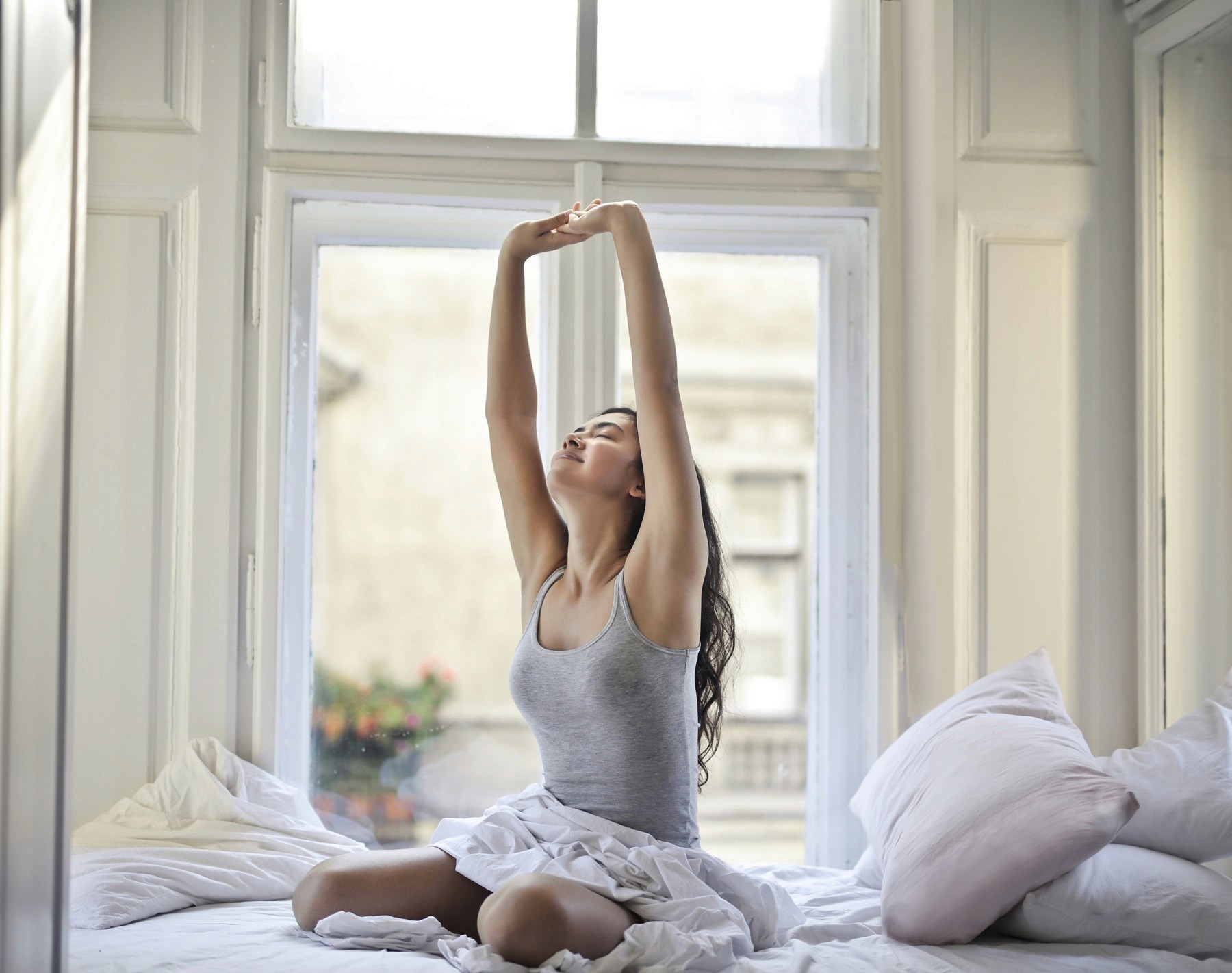
Source: bruce mars
How do sleep trackers work?
At-home sleep trackers come in various forms and can be categorized as “wearables” or “nearables” depending on whether you need to wear them or place them nearby. Sleep tracking devices typically work through sensors that detect different stimuli, such as:
Body movement
Breathing rate
Heart rate
Bedroom temperature
As there’s no universal measure of sleep quality, each device has a distinct algorithm that interprets the gathered data and provides different insights. For example, a device may give you sleep scores, graphs to visualize the data, and even advice for sleep improvement.
There are also apps that detect your sleeping time through phone usage data and self-report sleep quality.
Who should use a sleep tracker?
Sleep trackers are suitable for anyone who wants to monitor their sleep more closely. They’re noninvasive and easy to use and can provide helpful information that can give both you and your doctor a better idea of how you sleep.
The devices are especially common among biohackers and athletes who rely on great health and want to boost their performance further.
Bonus read: Check out our article on biohacking for women!
Still, sleep trackers are not for everyone. If you have severe sleep issues, you should see a doctor first as these devices can’t replace professional diagnosis and treatment. Those who suffer from sleep-related anxiety may find that a sleep tracker worsens their condition.
8 best sleep tracking devices in 2024
Sleep trackers come in many different forms — and not all will suit your sleep habits. That’s why we’ve singled out the eight best ones for your convenience. Here’s a brief overview of our picks before we dive deeper into their features:
1. Best sleep system: Eight Sleep
Many biohacking influencers, including Bryan Johnson, have promoted Eight Sleep, an intelligent three-piece sleep system you can add to your bed to get an extra hour of sleep each night.
Eight Sleep’s network of sensors monitor your heart and breathing rate, movements, bed temperature, and room temperature — which you can check through the accompanying app’s Sleep Fitness score.
The app also reveals other information, such as when you enter each sleep stage and how often you snored. The app features an AI sleep coach that can give you recommendations for improving your sleep regime.
Using your biofeedback, Eight Sleep can automatically cool or heat your bed, elevate it to stop snoring, and wake you up gently with vibrations and a thermal alarm.
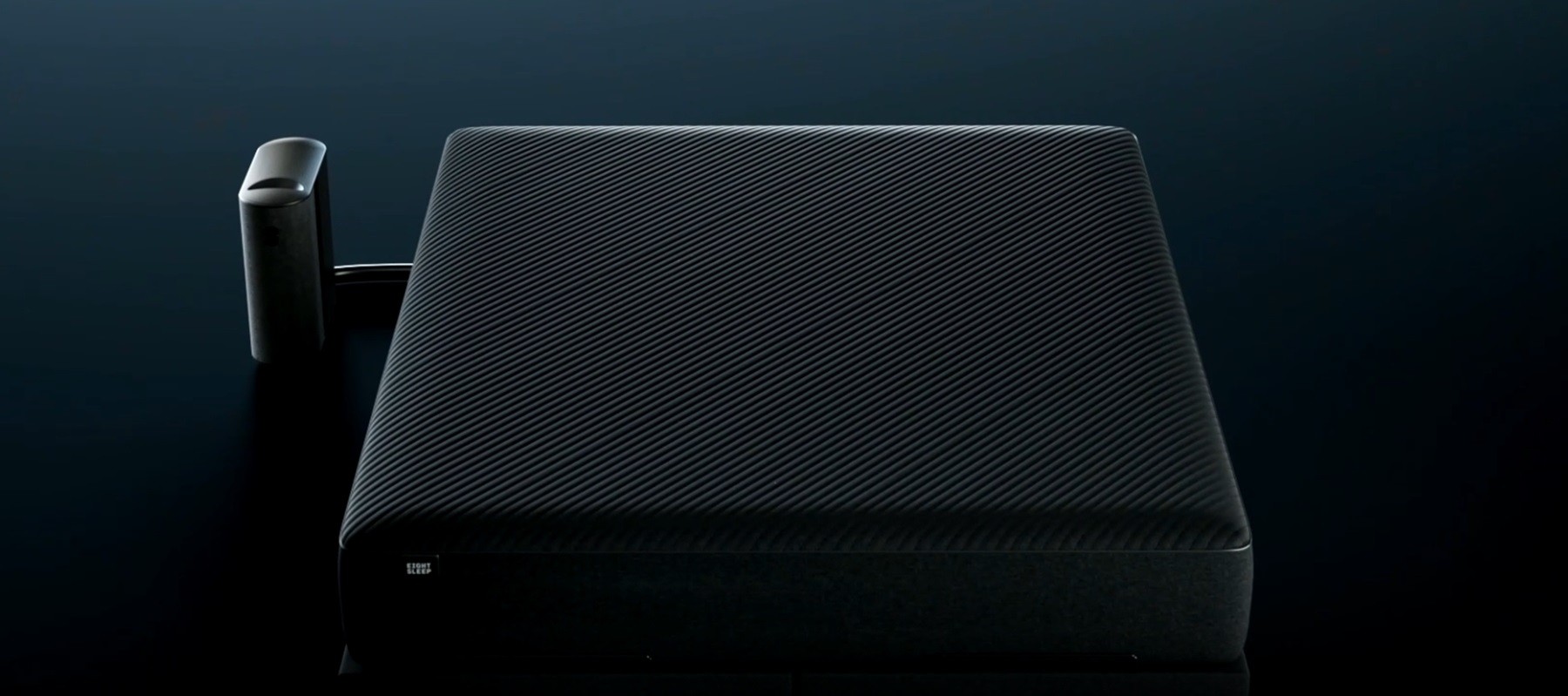
Source: Eight Sleep
2. Best watch for sleep tracking: Garmin
Compatible Garmin watches can track various sleep-related metrics, from body movements to blood oxygen levels. They can detect when you’ve fallen asleep and woken up and how much time you’ve spent in key stages—light, deep, and REM.
Your Garmin will provide you with a sleep score, ranging from 0 to 100, calculating it based on not only sleep metrics but also your:
Age
Physiology
Daily activity
As a result, you can understand how your daily activities and stress levels influence your sleep. Some Garmin watches also come with a Sleep Coach, a feature that recommends the optimal amount of sleep for upcoming nights according to your baseline and current state of activity and stress.
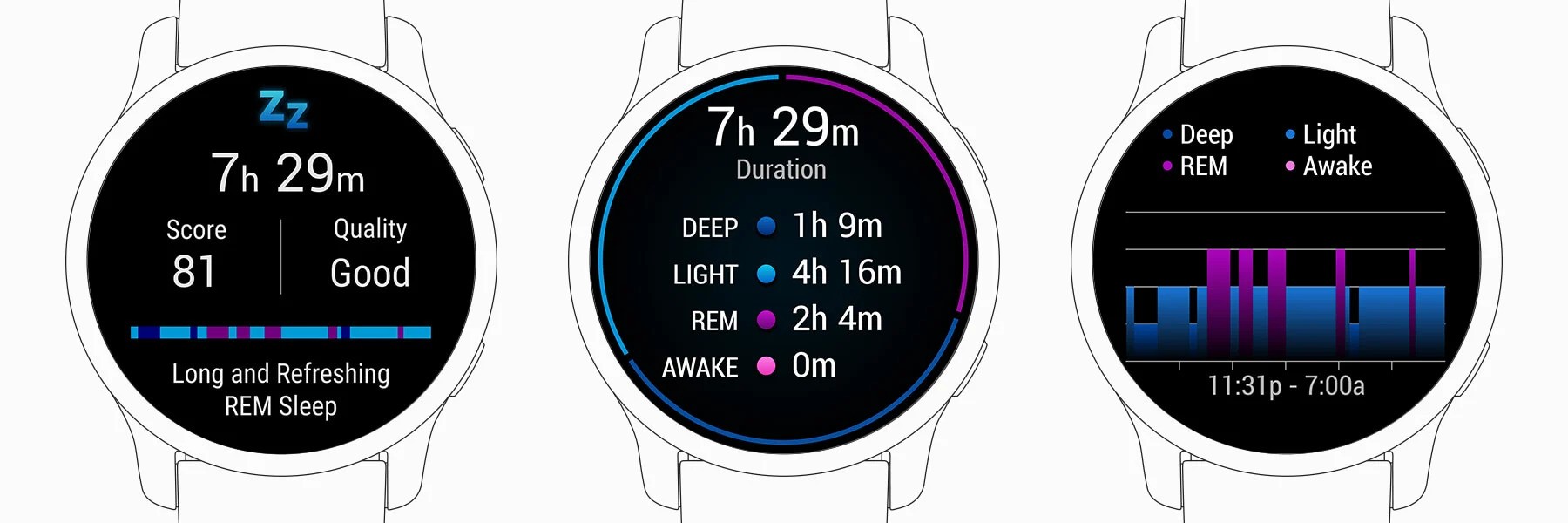
Source: Garmin
3. Best sleep tracking wristband: Whoop
Whoop is a screen-free wristband that can help you manage your sleep, exercise, and stress. Although sold as a wristband, Whoop’s tracker can be detached and worn with a sports bra, leggings, and other pieces of clothing. This makes it one of the most flexible sleep trackers on the market.
Whoop monitors numerous health and sleep markers, including heart rate, blood oxygen levels, and skin temperature. Based on the information it collects, Whoop can assess your sleeping efficiency and detect wake events and sleep stages. It can also use these metrics to detect your optimal wake-up time and vibrate to awake you gently.
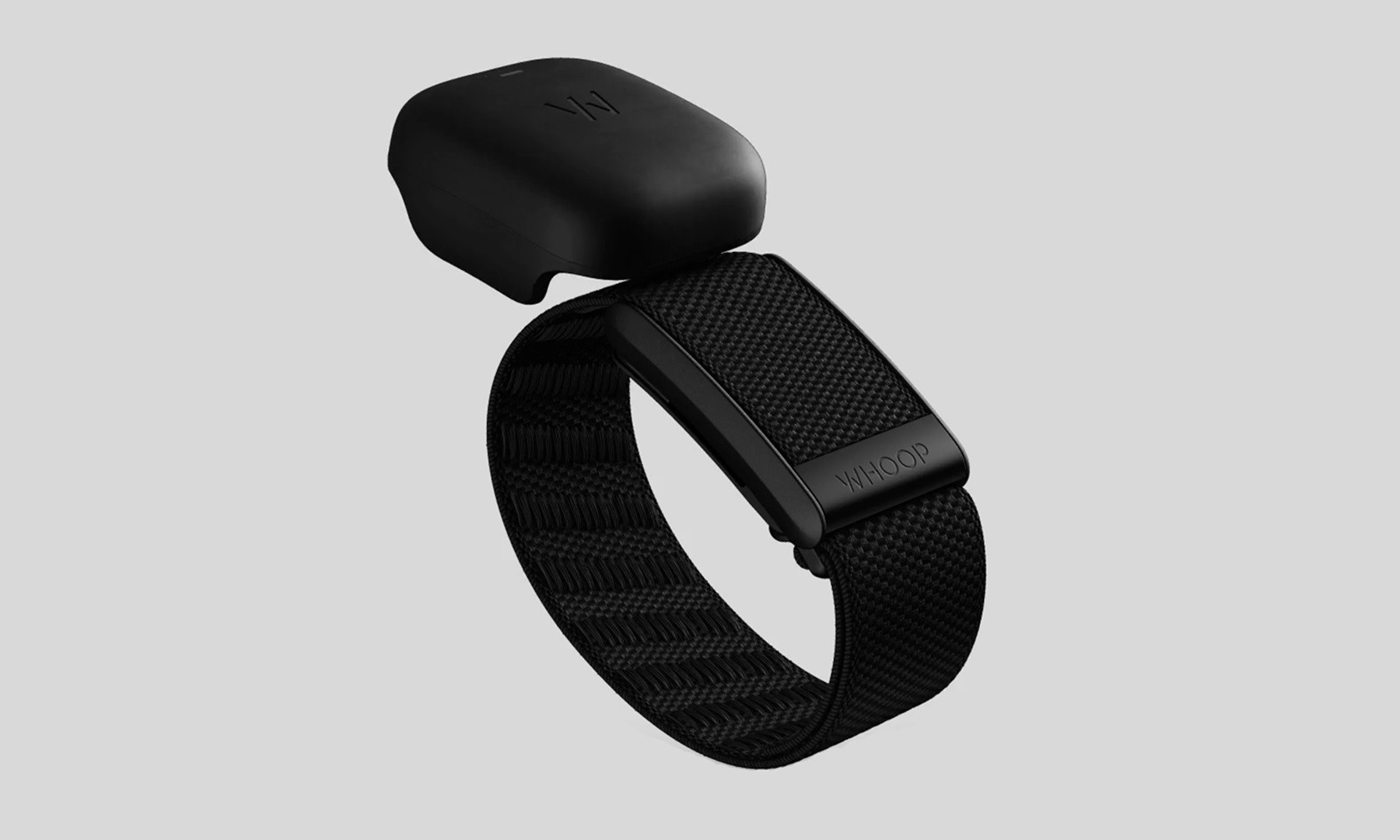
Source: Whoop
4. Best sleep tracking ring: Oura Ring
Oura Ring is the most comfortable and lightweight sleep tracking wearable out there. It measures over 20 biometrics, including heart rate and blood oxygen levels, to provide an in-depth analysis of your sleep.
The Oura Ring calculates your sleep score based on your bedtime, the time it took you to fall asleep, and an estimate of the time you spent in each sleep stage. Once you wake up, you’ll get a readiness score to find out if you should start the day or get more sleep. The device can also offer sleep improvement recommendations and even determine your optimal sleep schedule.
Still, one of the most impressive features is its battery, which requires charging every eight days.
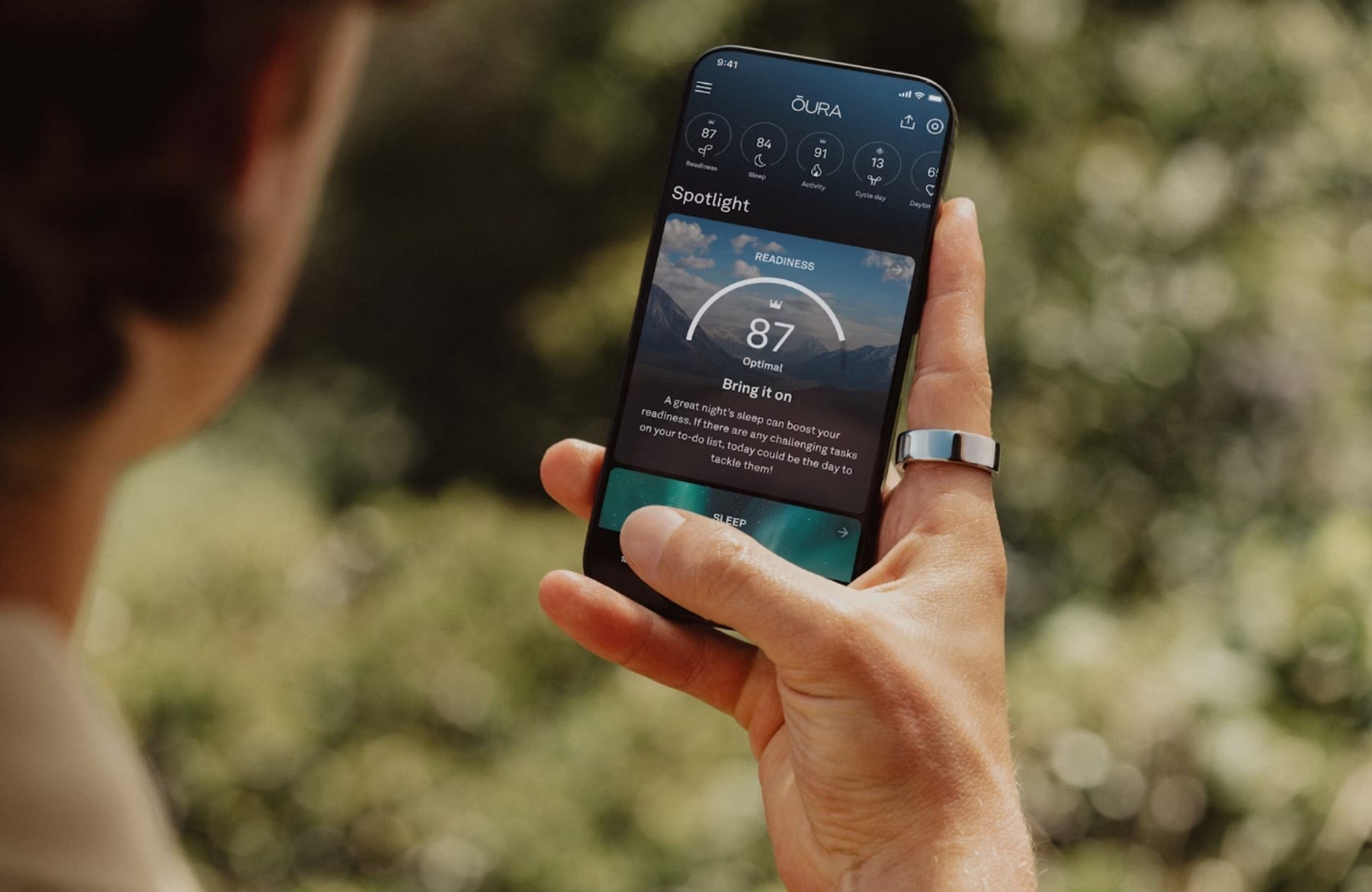
Source: Oura
5. Best sleep tracking mask: Bía Smart Sleep Mask
If you don’t mind sleeping with a device on your head, the Bía Smart Sleep Mask is worth checking out due to its long list of unique features. Besides blocking out light to help you fall and stay asleep, this device can collect neurofeedback through Functional Near Infrared Spectroscopy (fNIRS).
This advanced sleep tracking technology can detect your sleep stages based on the oxygen levels in your blood. Besides providing crucial insights about the quality of your sleep, the fNIRS technology can help you sleep and train your brain to sleep better with sounds and music. The Bía mask can even simulate a sunrise to help you wake up.

Source: Bía
6. Best sleep tracking headband: Muse S
Muse S is a headband that can help train your brain to focus or calm down when you’re anxious or looking to sleep. It’s also a sleep tracker, monitoring an impressive number of metrics, including movement, heart rate, and EEG brain activity. The EEG brain sensors can detect the amount of time you were in each sleep stage so you can gauge how deeply you’ve rested.
Besides that, Muse S can measure your sleep score or sleep efficiency and even track your positions so you can figure out which ones promote the best sleep. If you’re having trouble falling asleep, you can use the Muse app to access various guided meditations.

Source: Muse
7. Best non-wearable sleep tracker: Withings Sleep
In case you prefer to sleep with no accessories, Withings Sleep is a suitable choice. You only need to plug it in and place it under your mattress, and you’ll be able to access your results within the app in the morning.
Withings Sleep offers clinically validated sleep analysis. It measures your heart rate and movements, providing a sleep score based on factors such as:
Duration
Interruptions
Recovery
It can even tell you how often and how long you’ve snored and estimate the severity of your sleep apnea.
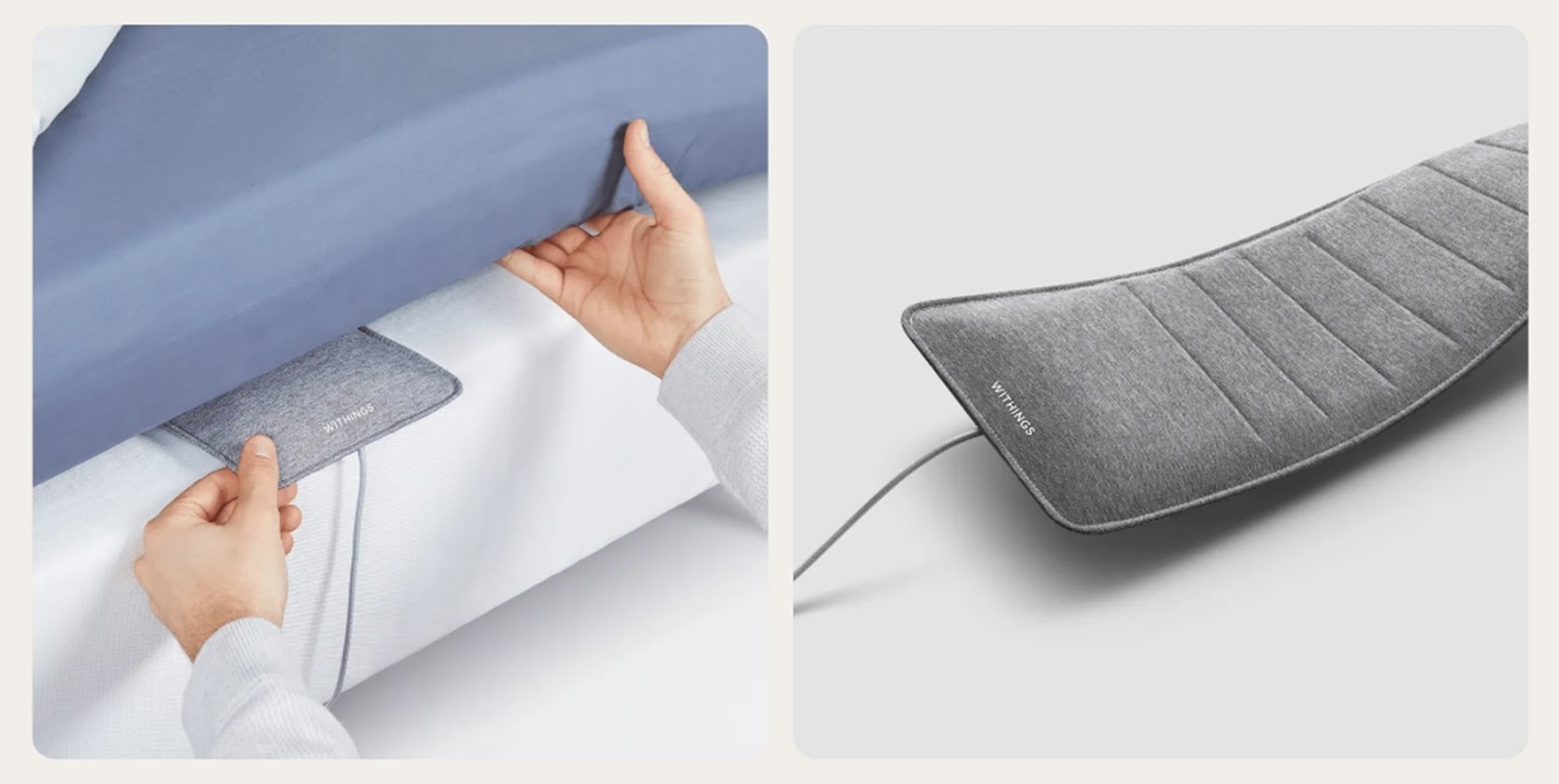
Source: Withings
8. Best sleep tracking app: Rise Science Sleep Tracker
As a smartphone app, Rise can’t track any sleep metrics on its own, but it can still offer valuable sleep advice. While you can use it alongside a wearable device, you don’t need to. Rise Science will use phone data, such as your movements, to detect when you’re asleep.
Once it identifies your sleep habits, Rise can provide high-quality and actionable sleep reports, offering science-backed advice for improving your sleep. Rise bases its analysis of your sleep quality on the following two key factors:
Sleep debt: Sleep debt represents the rest you owe your body. Besides calculating your sleep debt score, Rise will give you recommendations for how to make up for lost sleep.
Circadian rhythm: Rise can reveal how your body’s inner clock works, predict your daily energy schedule, and help you stay on top of it.
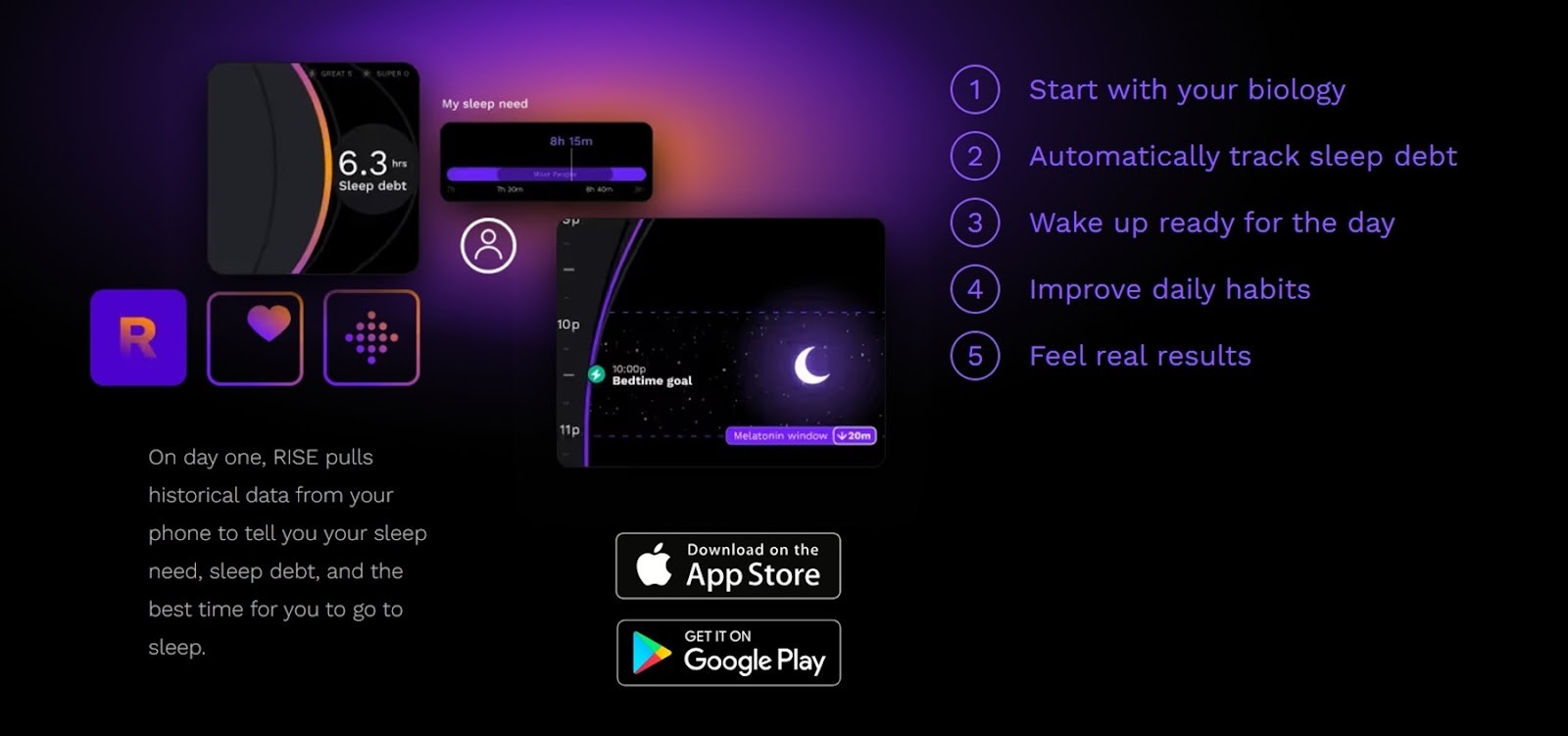
Source: Rise
Tips to improve your sleep
Sleep trackers can only gather information about your sleep and sleep disturbances. Still, it's up to you to change your habits to ensure better rest. Here are some examples of practices you can try:
The limitations of sleep tracking devices
While helpful, sleep trackers are often not as sensitive or granular as the companies claim. Many companies state their devices can track your sleep stages, but the truth is — most of them can’t do this reliably unless they measure brain activity.
Even if the collected data is correct, some experts suggest that sleep trackers tend to give overarching conclusions and advice. Their sleep scores are often arbitrary and not supported by scientific research. In reality, sleep is a complex phenomenon and not even experts know exactly what’s considered optimal.
This is especially true if you’re predisposed to insomnia. In most cases, your DNA decides this trait, and no sleep tracker can give you that insight. On the contrary, it may report perfect sleeping conditions — but you’ll still experience the same problem and have no answers.
That’s why DNA analysis is a great scientifically backed way to find out whether your insomnia is triggered by some of your genetic variants (differences in your DNA).
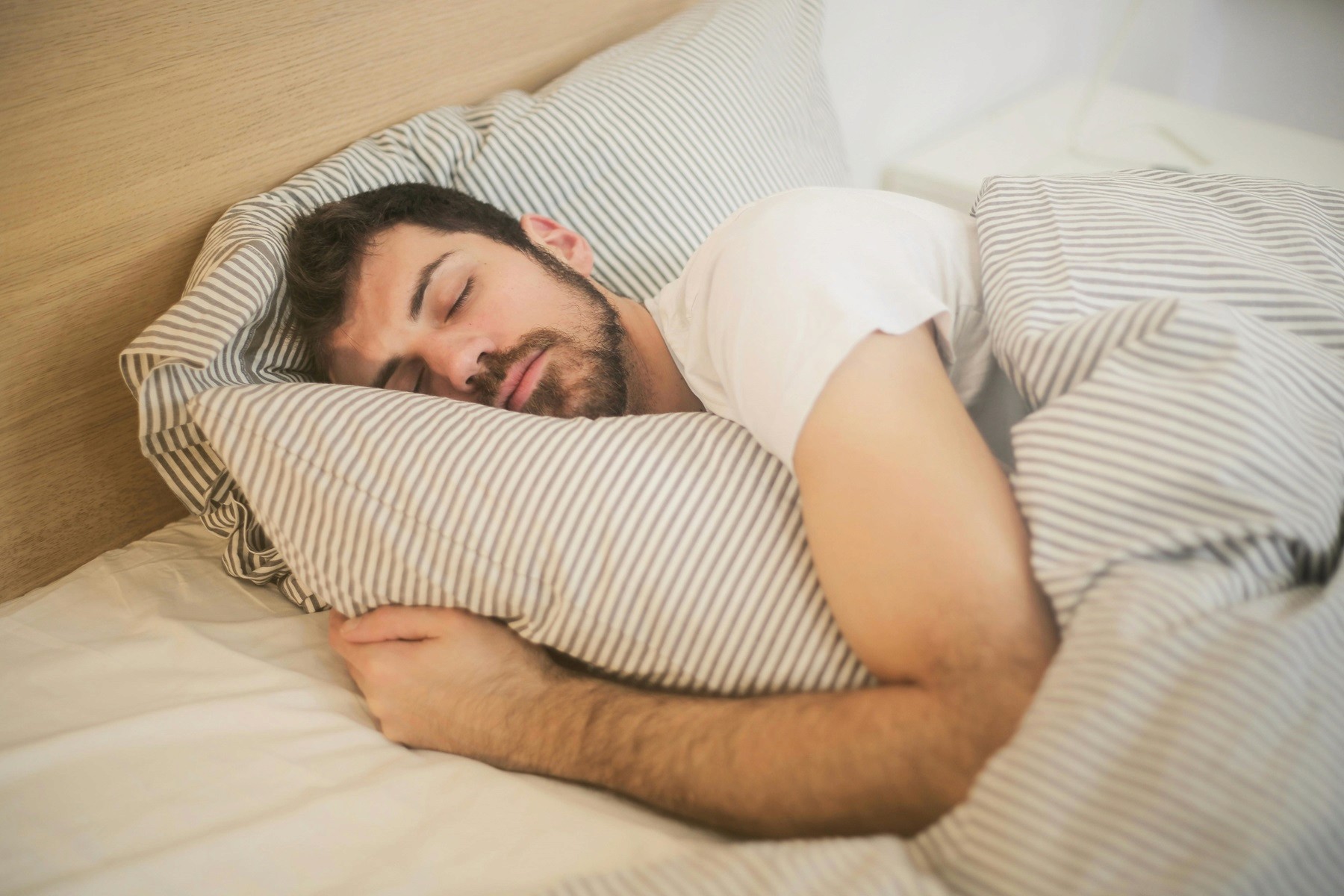
Source: Andrea Piacquadio
How genetic insights can lead to better sleep
Research suggests that genetics may play a role in individual differences related to sleep. For example, some family and twin studies suggest that insomnia has a large hereditary component, ranging from 25% to 45% in adults and 60% to 80% in children.
By taking a DNA test, you can understand the cause of your sleep issues and get guidance on how to overcome them effectively.
For an affordable testing platform that uses the latest technology — go with Nucleus Premium. You can take this clinical-grade test at home in minutes, and the platform will analyze your genes with 99.9% accuracy. Nucleus will account for non-genetic factors like age, smoking, and cholesterol levels to give you the most holistic report.
With this knowledge, you can explore sleep and other health products that align with your unique biology.
Get all-in-one genetic health analyses with Nucleus
An all-in-one DNA platform, Nucleus analyzes almost 100% of your genome and non-genetic factors to provide detailed and accurate reports on your genetic susceptibility to insomnia, as well as 170+ other health conditions. This approach is much more reliable than most commercially available testing services that only analyze <0.1% of your DNA.
With clear and actionable reports, you can understand your risk easily and quickly take action to improve your sleep, prevent health problems down the line, and ensure a better quality of life.
If you need more guidance on your results or the next steps, Nucleus can connect you with a board-certified genetic counselor via SteadyMD. You can also bring your results to a sleep specialist or another medical professional for advice on the best course of treatment, be it medication, supplements, or cognitive-behavioral therapy for insomnia (CBT-I).
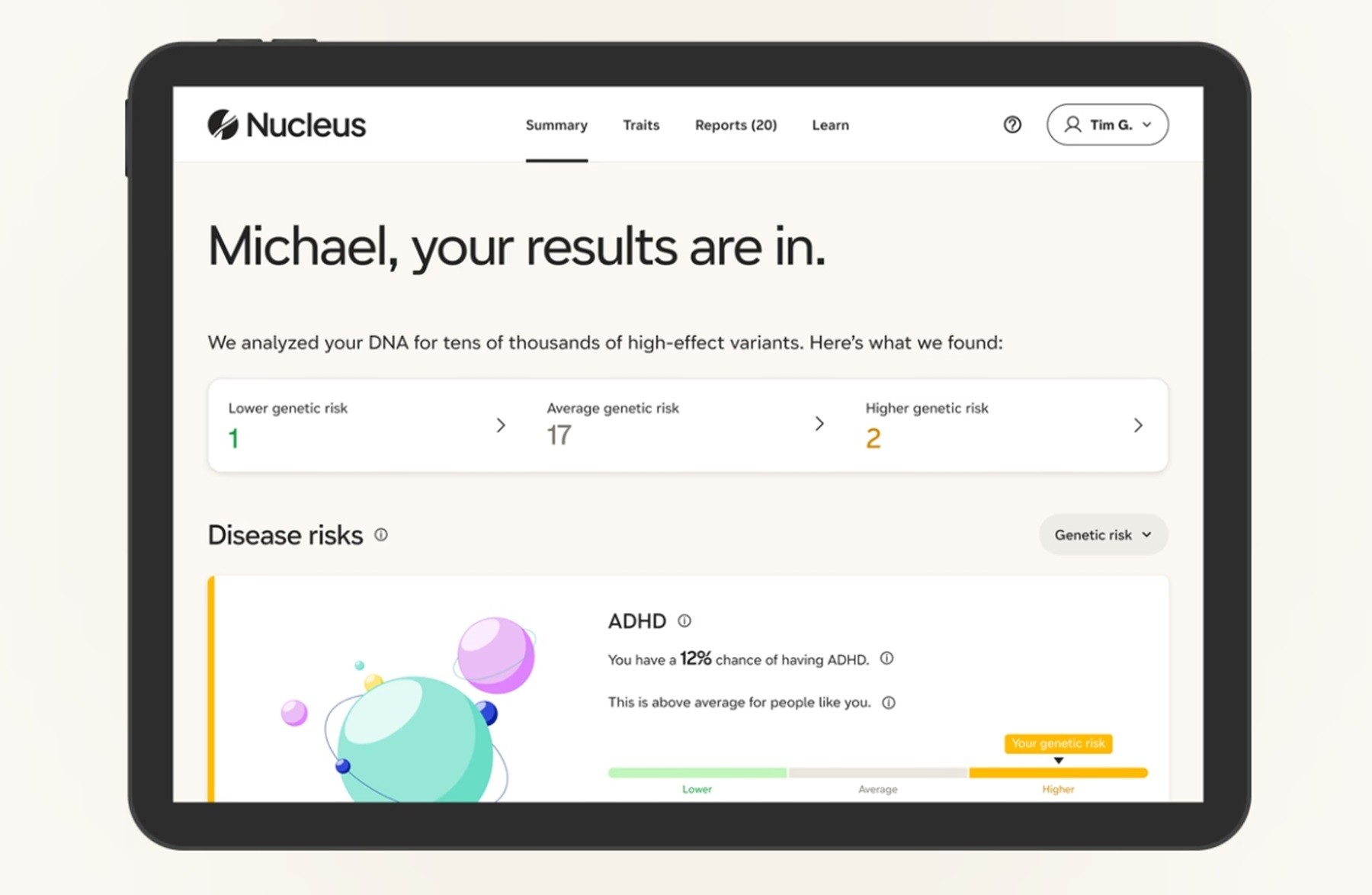
Besides insomnia, you’ll get similar reports for other diseases and conditions, including anxiety, heart disease, and even rare cancers — all at a single price point.
One price, numerous reports
Nucleus Premium is one of the most affordable whole-genome tests available today. You can get the kit for only [PRICE.KIT_SOLO.ONE] and even use your HSA or FSA health savings plan to cover the cost.
This plan includes the insomnia analysis and all other available health and trait reports. You can also choose to receive updated reports later based on scientific advancements and your lifestyle changes.
Invest in sound sleep and a healthy life with Nucleus
Take these steps to get started with Nucleus:
Provide your personal information
Order the Nucleus Premium kit
Once you send your samples to the lab, your results will be available in about 6–8 weeks.
Nucleus is fully compliant with HIPAA, and only works with CAP-CLIA-certified labs.
You may also like…
Want to learn more about improving your cognition and overall well-being? Check out our other articles:
Featured image source: Greg Pappas












